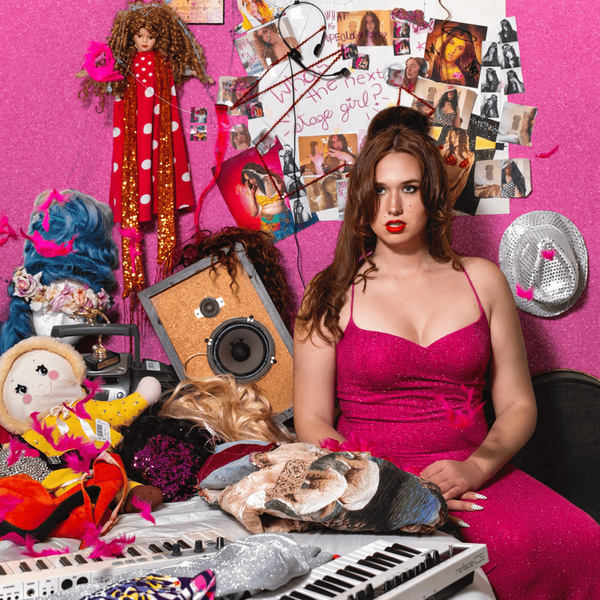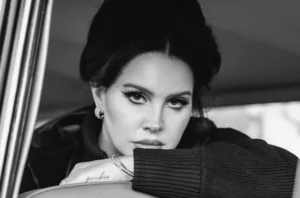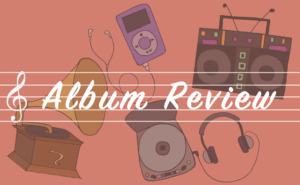I’ve spent most of this year trying to act normal, but the truth is… I’ve been stalking Eli. Not in a scary way (yet), but in the only way that matters: listening to her music, replaying her music, and sneaking into her oh-so-chaotic livestreams.
An emerging pop phenomenon, Eli has that rare trifecta: a voice that’s bright, writing that’s clever, and a personality that, both charismatic and disarmingly sincere, had me at hello.
By the time her debut album, Stage Girl (2025), arrived on Halloween, my anticipation had given way to devotion. The album’s ten stellar tracks, accompanied by dazzling, era-defining music videos, follow Eli’s fictional-but-not-so-fictional persona auditioning for an American Idol-esque competition. Will she make it? Will Eli be the “next Stage Girl?” The question lingers throughout, playful and persistent, like a wink at the listener.
And she has the talent to make it. Unequivocally. Eli’s music has already drawn attention from artists like Doechii, Troye Sivan, and Zara Larsson—many of whom first encountered her through the album’s second track, “Girl of Your Dreams,” which was released in May. That song became my personal song of the summer and, perhaps, in its own way, a manifesto. I spent all of June yelling the lyric “Now I got Kevin,” only for my summer roommate to turn out to be a Republican named Kevin. The music holds true power, it seems.
Before “Girl of Your Dreams,” Eli released “Marianne,” an effervescent breath of air. Both tracks flow seamlessly into “Falsetto,” a Frank Ocean–esque track that packs romance, humor, and transformation into three minutes of pure ear candy. The song chronicles her pursuit of a man while simultaneously tracing her transition into girlhood, her voice rising to match the narrative shift.
What makes Stage Girl irresistible is the way it wears its reflection on its sleeve. Pink, pixelated, kitsch, and self-aware, it’s a masterclass in pop authorship. Eli reveals the scaffolding, rhinestones and all, and in doing so, reminds us why we fell in love with pop in the first place. For transformation, drama, and just enough glitter to make it dangerous.
I felt this most acutely as I lay in bed post-Halloweekend and hit play on “I Wish I Was a Girl.” The chorus—“I wish I was a girl / Pretty on the inside / Redesign my outline”—hit me like a mirror I hadn’t realized I was holding. It’s cheeky, sure, but underneath it all is something raw: longing, curiosity, and the messy thrill of trying on someone else’s skin and seeing yourself reflected in it.
The verses read like miniature cinematic daydreams: waking up in someone else’s makeup, slipping into lace fronts, sneaking past friends at the bar. But it’s more than fantasy. Eli is performing femininity, yes, but she’s also exploring it, claiming it, building it piece by piece. By the final chorus, it feels less like wishing and more like declaration: “I might just be that girl / Femininely realized.” At that moment, the track stopped being someone else’s story. It became mine.
This sense of audacious self-realization carries through the rest of the album, crystallizing in “All at Once.” Here, Eli confronts the rush of change head-on, as she feels “every feeling, and it feels divine.” There is bravery in that admission, this refusal to simplify the messy, contradictory nature of becoming. Pop rarely allows this level of vulnerability, but here, it feels entirely organic. Perhaps that’s what makes Stage Girl so spectacular. Trans-ness in pop is raw, immediate, brilliantly human. But Eli does more than center herself. She invites listeners into her process, her labor, her joy. The glitter, falsettos, and playful theatrics are mirrors through which any listener can glimpse the thrill of transformation, the audacious act of trying on new skins, discovering oneself in flux.
Eli’s genius is that she balances all of this without ever feeling heavy-handed. Humor, spectacle, and introspection coexist seamlessly. The album’s visual and sonic motifs challenge our assumptions about femininity, inviting us to explore it anew. By the final track, “Somebody I’m Not,” it’s clear that playing, experimenting, believing, is not frivolous—it is vital.
At the end of Stage Girl, Eli’s persona is more than a character; it is a philosophy. Pop music can be transformative. Identity can be playful without being shallow. Spectacle can be profound. And when the final note hits, you step out of the dressing room a little braver, a little more unashamed, a little more yourself.
I often dream about being a pop star. I write songs and produce music in my bedroom, with my mind in the gutter and the Shure SM7B I haggled off eBay in my hands. But despite my one-hit-wonder in high school that catapulted me to nonexistent fame, I never go all in for fear of being cringey or inexperienced. Eli is rewriting my mind, teaching me that the only thing worse than failing at pop is never trying at all. Suddenly, the idea of releasing my own ridiculous, glitter-strewn anthems doesn’t feel impossible. Maybe I can be a Stage Girl, too.
Voice’s Choices: “Girl of Your Dreams,” “I Wish I Was a Girl,” “Somebody I’m Not”






